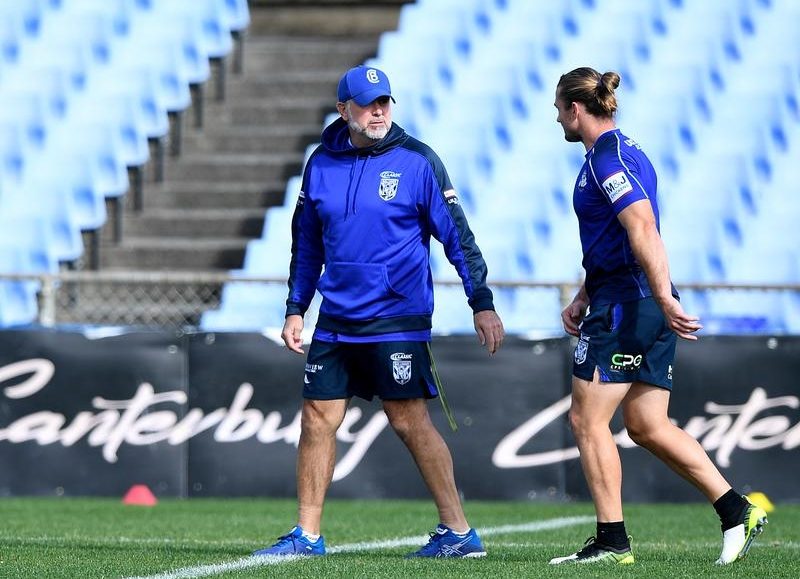
Canterbury coach Dean Pay will consider rotating his young halves through the NRL season to mitigate fatigue over 18 consecutive rounds leading into finals.
On Friday Pay, Cronulla’s John Morris and St George Illawarra’s Paul McGregor joined several fellow NRL coaches in backing a rotation policy to manage game time for players.
With no byes from round three next week until the grand final on October 25, player rotation would also allow clubs to manage the load on their biggest stars.
From the season decider, any representative players will then have 10 days until State of Origin game one in November, adding to the workload of the highest-profile rugby league stars.
Pay has four halves to manage and said, with no reserve-grade football on offer, a lack of game time for players who miss out on the best 17 each week also needs to be considered.
“There’s 18 games and no byes at all so fatigue will play a factor, especially with young halves. It does wear them out playing week in and week out footy,” he said.
The NRL is still looking into a replacement competition for reserve grade, although it is not considered a priority with first grade yet to get up and running.
With a broadcast deal yet to be finalised to fund the entire game, the cost of running a makeshift lower-grade competition remains a stumbling point.
For clubs, one of the biggest concerns surrounds an injury to an NRL player later in the season and having to promote a replacement who has not played for months.
“It’s very rare that you get a 17-man squad that goes 18 back-to-back games,” Morris said.
“If there was a niggle or someone was struggling, certainly I wouldn’t hesitate to rotate them.
“At the same time, you want your best 13-17 out on the field as often as you can.
“You’d just have to monitor it and see how things go throughout the year, but you certainly want to give those guys on the fringe a chance to play.”
McGregor said the Dragons are training above game-intensity at least once a week and swapping out interchange forwards would be no concern regardless of match time.
“Some stronger clubs can probably afford to do a lot more (rotation) than other clubs,” he said.
“If there’s not too much difference (in quality) between a player coming in and coming out, and the player that is in there is fatigued or his loads are high, then there is every reason to interchange those players and work on a roster system.”





